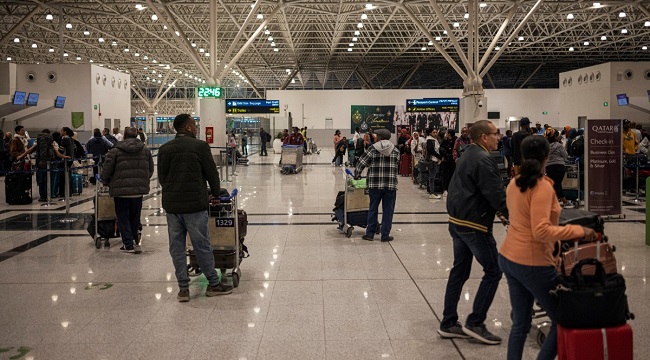The military Joint Task Force (JTF) said on Monday they killed 30 members of Islamist sect Boko Haram, including a senior commander, and arrested 10 others in a weekend raid on the north eastern city of Damaturu.

Lieutenant Eli Lazarus, a spokesman for the JTF in Yobe state, said in a statement that they had conducted cordon and search operations at a suspected Boko Haram hideout in Damaturu on Sunday and “engaged in a gun battle with the suspected terrorists.”
“About thirty suspected Boko Haram terrorists were killed in the battle which lasted several hours … The notorious one-eyed Bakaka, the field commander of Boko Haram in Damaturu and a close associate of Abubakar Shekau was killed,” he said.
Ten others were arrested and “are presently assisting investigators to track other senior members of the terrorist group,” he added. Three homemade bombs, six assault rifles and 90 rounds of ammunition and several knives were seized, he said.
There was no immediate comment from Boko Haram.
Boko Haram is waging an insurgency against President Goodluck Jonathan’s government with the avowed aim of reviving an ancient Islamic kingdom in majority Muslim northern Nigeria.
Styled on the Afghan Taliban, the sect’s purported leader Abubakar Shekau has said he wants to impose Sharia law on the country of 160 million people, around half of whom are Christian and the other half Muslim.
The sect’s fighters have killed more than 1,000 people in bomb or gun attacks since they intensified their struggle in 2010, rights groups say.
A military crackdown on the Islamists in the north appears to have weakened them, leaving them less capable of carrying out large-scale, sophisticated attacks like the one that killed 186 people in Kano in January.




